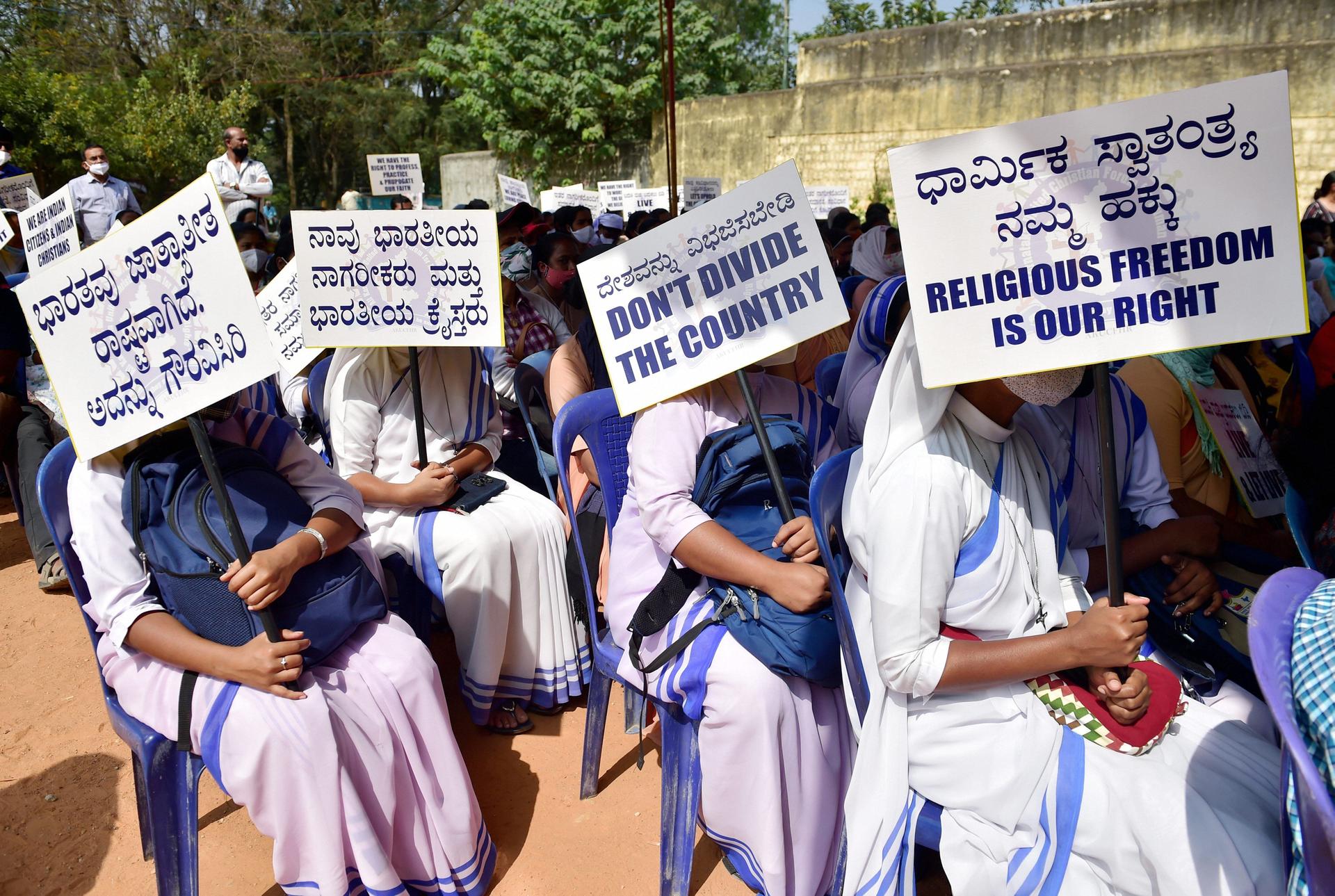MUMBAI – A leading Catholic bishop in India has applauded a state government’s decision to recommend repealing a controversial anti-conversion law, which critics saw as a means of intimidating religious minorities in the largely Hindu nation.
“We are happy with the decision to repeal the anti-conversion law passed by the previous government,” said Archbishop Peter Machado of Bangalore. “It was discriminatory, anti-constitutional and unnecessary.”
The measure in Karnataka, a state located in southeastern India, to repeal the “Protection of Right to Freedom of Religion Act,” must still be adopted by the state’s legislature, with debate scheduled to begin on July 3. The bill had been adopted last year under a state government led by the BJP, the right-wing Hindu nationalist party led by national Prime Minister Narendra Modi.
“The bill brought by the BJP in 2022 will be repealed, and the bill which we are bringing will be in accordance with the Constitution,” Karnataka Law Minister HK Patil was quoted as saying by the Indian news agency PTI.
The anti-conversion law had proposed imprisonment from three to five years with a fine of $300, while for violation of provisions with respect to minors, women, and members of India’s protected classes, the offenders faced imprisonment from three to ten years and a fine of not less than $600.
The law also set up a cumbersome process for free acts of religious conversion, requiring the convert to provide 30 days’ notice to a district magistrate and allowing parties wishing to object to do so within that time frame, which could trigger a formal investigation.
The law also contains a provision that a marriage which occurred solely for purposes of converting one of the parties from one religion to another can be declared null by a family court.
In its manifesto for the 2023 Karnataka elections, the Congress party, India’s main opposition group, had promised to repeal all “unjust and anti-people laws” passed by the previous BJP government.
“I hope [the repeal] will have a comfortable passage in the assembly when it is brought for discussion,” Machado said.
“Christians will always continue to work under the Constitution of India, in the interest of the state and the nation, continuing to render our service to all, irrespective of caste and creed, reaching out especially to the poor and the marginalized,” said Machado, who serves as president of council of Catholic bishops in Karnataka as well as president of the “All Karnataka United Forum for Christian Human Rights.”
“The anti-conversion bill in Karnataka and in other states increased attacks on Christians, as it encouraged the fringe elements to attack and cause harm to Christians,” Machado said in a statement to the press. “It fueled doubts, mistrust and disharmony between communities.”
“I hope the other states will also follow suit and withdraw the bill,” he said.
“I acknowledge that the repeal of this controversial bill serves as a validation of the consistent stand taken by the Church and the community,” Machado said.
“It reaffirms the belief that the legislation was not only detrimental to the individual’s freedom of religion but also stood in direct contradiction to the provisions enshrined in Article 25 of the Indian Constitution. This article guarantees the freedom to practice, profess, and propagate any religion, a fundamental right essential for a diverse and pluralistic society,” he said.
A BJP lawmaker named Tejasvi Surya has objected to the move to repeal the law.
“Anti-conversion law was aimed to stop fraudulent and coercive conversions,” Surya said. “By repealing this act, Congress has once again shown that it places its vote bank interest over and above the spirit of the constitution and the law of the land,” Surya said.












